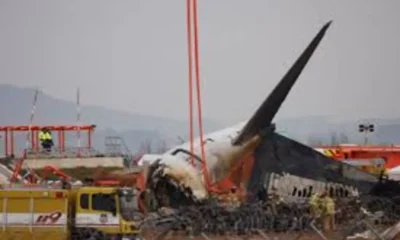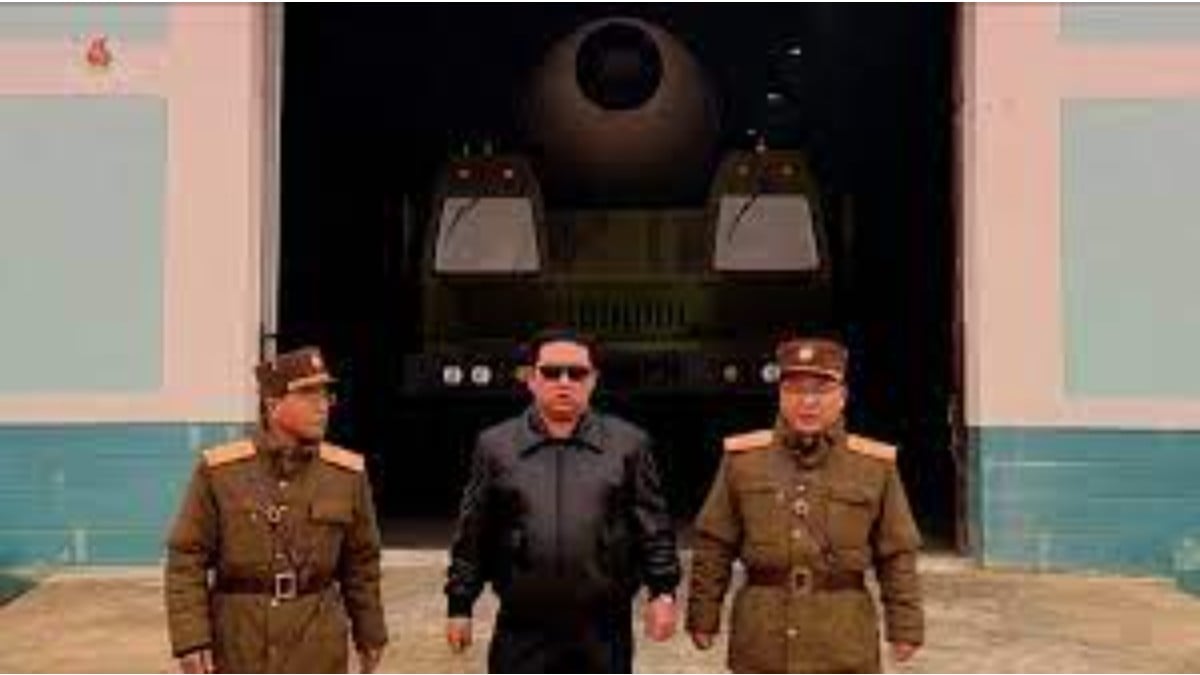South Korean high ranking officials met Kim Jong un Wednesday
In a major development, leaders of North and South Korea have agreed to meet from September 18 to 20 in Pyongyang to discuss “practical measures” towards denuclearisation. This would be their third summit in six months time.
According to Seoul based The Korea Times, National Security Office head Eni-yong told reporters at Cheong Wa Dae, the presidential palace, “During the three-day meeting, the leaders of the two Koreas will discuss ways to improve inter-Korean relations and achieve denuclearization such as the North’s possible concessions to hand over a list of its nuclear arsenal.”
The daily further reports that the announcement came a day after a group of South Korean President Moon’s five envoys led by Chung, returned from Pyongyang, where they met the North Korean leader Kim Jong Un and delivered President Moon’s letter. The envoys also delivered messages from US to North Korean side, Chung said.
Read More: Inter-Korean Summit To Be Held In Pyongyang in September
North Korean official news agency KCNA watch reports that Kim Jong Un received the members of the special envoy delegation of the South Korean President Moon Jae In who visited Pyongyang on Wednesday at the headquarters of the WPK Central Committee.
 According to North Korea’s state news agency KCNA, the North Korean leader reportedly said, during his meeting with South Korean envoys, that it was his country’s “fixed stand and his will to completely remove the danger of armed conflict and horror of war from the Korean Peninsula and turn it into a cradle of peace without nuclear weapons and free from nuclear threat”.
According to North Korea’s state news agency KCNA, the North Korean leader reportedly said, during his meeting with South Korean envoys, that it was his country’s “fixed stand and his will to completely remove the danger of armed conflict and horror of war from the Korean Peninsula and turn it into a cradle of peace without nuclear weapons and free from nuclear threat”.
The visit by the South Korean envoys delegation to Pyongyang came amid a deadlock on the North’s nuclear weapons programme, with US efforts to dismantle the arsenal stalled for weeks.
Read More: North and South come closer on Korean Peninsula
During the June 12 summit in Singapore, US President Donald Trump his North Korean counterpart Kim Jong un vowed to work towards the “complete denuclearisation of the Korean Peninsula”, but their agreement was short on details on what that meant and how it would be achieved.
Having no progress in denuclearization process, US President Donald Trump cancelled Secretary of State Mike Pompeo’s trip to Pyongyang after the North reportedly sent a belligerent letter to the US president last month.
However, Kim told the South Korean officials on Wednesday that his faith in Trump remains “unchanged” and he wanted to denuclearise and end long-standing hostile relations between North Korea and the US during Trump’s first term ending early 2021.
Kim’s remarks to South Korean officials mark the first time that the North Korean leader has offered a potential timeline for dismantling his country’s nuclear weapons programme.
Read More: North and South Korean leaders to hold summit on April 27
South Korean senior official was quoted saying, “Chairman Kim asked us to convey the message to the US that the US [should] help create situations where he would feel his decision to denuclearise was a right move”.
North and South Korea remain technically at war as the 1950-53 Korean War ended in a ceasefire. The Korean conflict is based on the division between two Koreas, both of which claim to be the government of the entire peninsula
During the Cold War, North Korea was backed by the then Soviet Union, China and other communist states while South Korea was backed by the US and its capitalist allies. The division of Korea by external powers occurred at the end of World War II in 1945, and tensions erupted into the Korean War, a civil war, in 1950. When the war ended, the country was devastated, but the division remained. North and South Korea continued a military standoff, with periodic clashes.
The U.S. maintains a military presence in South Korea under a mutual defense treaty. In 1997, U.S. President Bill Clinton described the division of Korea as the “Cold War’s last divide”. In 2002, U.S. President George W. Bush described North Korea as a member of an “axis of evil”. Facing increasing isolation, North Korea developed missile and nuclear capabilities.
In April 2018, North and South Korea signed the Panmunjom Declaration, announcing a commitment to denuclearization and a peace treaty to officially end the Korean War. In June, Kim Jong-un and Donald Trump met in Singapore and affirmed the same commitment.


 Latest world news17 hours ago
Latest world news17 hours ago
 Latest world news17 hours ago
Latest world news17 hours ago
 Latest world news17 hours ago
Latest world news17 hours ago
 India News17 hours ago
India News17 hours ago
 India News8 hours ago
India News8 hours ago
 Latest world news8 hours ago
Latest world news8 hours ago













